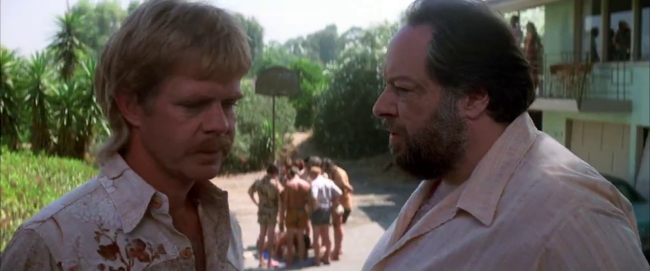The Generic Brand Version of Scorsese

So what the hell happens when Rollergirl takes off her skates? That's the question 1997's Boogie Nights just left unanswered. Ugh. Maybe it's meant to torment me, like Picnic at Hanging Rock, a question that's meant to go unanswered. But I really got to thinking, what if a person went years and years without removing her roller skates? We don't know if she removed them to bathe, certainly some of the shorts she wears would be difficult if not impossible to put on without removing the skates. Not to mention the horror-show ingrown toenails. But what if we took her at her word and assume the skates truly never come off? Would she lose the ability to walk, do you suppose? I imagine something like Chinese foot-binding would be happening to stunt or deform her bones, especially if we assume Heather Graham's character is meant to be rather young. Also, I was looking forward to a scene where removing her skates would be like a metaphor for her sharing her true self, or a realisation that her skates were her true self, like the scene in Paprika where it's some guy's dream that the "real" woman is hidden underneath Paprika's skin. The skates are Rollergirl's identity so in a real sense they're who she is. They are her feet.

But the movie doesn't go that way, she really amounts to no more than an extended, recurring gag with a few moments of false profundity, like many other characters in the film. Don't get me wrong, I liked Boogie Nights, I thought it was funny, but not like Goodfellas or Raging Bull, Scorsese films Boogie Nights unabashedly imitates, but like Airplane! or The Naked Gun. Boogie Nights is at its best when it's pure, superficial parody.

Mark Wahlberg plays Eddie, soon renamed Dirk Diggler, a young man whose enormous penis, which we don't see until the end of the film, makes him a star in the porn industry of the late 70s and early 80s. We're introduced to the world in which Burt Reynolds' character, Jack Horner, is essentially at the top with tracking shots through a pool party accompanied by contemporary music on the soundtrack in unmistakable resemblance to scenes in Goodfellas.

But where the humour in Goodfellas comes from real insight into human beings, Boogie Nights is populated by amusing caricatures I think the film at times mistakes for realistic characters. William H. Macy, for example, plays a porn producer whose wife's complete disregard for fidelity is played for laughs. She literally fucks a guy in the street while people stand around and not one person seems to understand why Macy's character is upset, the absurdity of their reactions naturally being funny. But when this plot turns deadly serious in the end, it feels like a rather cheap turnaround because it's had no real proper character development to back it up.

Dirk Diggler is really the same way. He's a completely innocent naive kid who shows empathy and concern for everyone until he does one line of coke and suddenly he's a complete asshole, everything he says is obnoxious. Obviously drug addiction changes people but Henry in Goodfellas was still capable of showing ranges of emotion and reaction both before and after he became an addict.

Julianne Moore's character Amber Waves is sweet and Moore is brilliant in the role, creating just the right impression of layers of accumulated psychological armour she can't take off even if she wanted to. She has all this maternal instinct she's redirected to her fellow porn stars and associates because her ex-husband won't let her see her kid. This would have been good subtext but it quickly becomes text as everyone almost immediately starts directly talking to her about it, Rollergirl begging to be considered one of her children. We still feel for Amber but, even though she's not funny, she exists in the simple logic of a parody film.

The end of the film features a reference to Raging Bull, one could say it's almost a parody of Raging Bull and it's about half as effective. But when the movie knows its place, like in the parody spy films Diggler makes with John C. Reilly's character, it's a lot of fun.